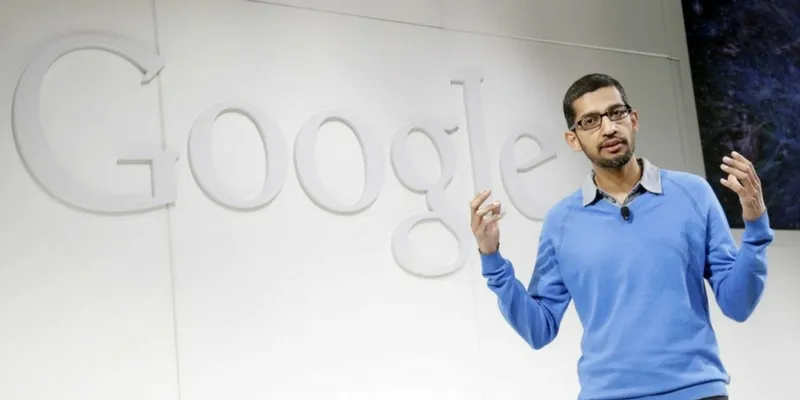Google parent Alphabet posts better-than-expected Q1 earnings
Alphabet's first-quarter revenue increased to $69.7 billion from $68 billion in the year-ago period, while net profit dropped to $15.1 billion from $16.4 billion.
parent has posted better-than-expected first-quarter results, on the back of advertising revenue and demand for cloud services.
Meanwhile, shares of the company rose nearly 4% in after-hours trading, before slowing down to 1.6%, after the company announced a $70-billion stock repurchase authorisation.
Alphabet reported a revenue of $69.7 billion in the first quarter, above analysts’ estimates of $68.9 billion, according to Refinitiv data. However, revenue growth slowed to 3% from 23% in the corresponding period of the last fiscal year. Its revenue in the year-ago period was $68 billion.
Alphabet’s Q1 net profit dropped to $15.1 billion (or $1.17 per share) from $16.4 billion ($1.23 per share) in the year-ago period. This was beyond analysts’ expectations of $1.07 per share, according to Refinitiv estimates.
“We are pleased with our business performance in the first quarter, with search performing well and momentum in Cloud,” Sundar Pichai, Chief Executive Officer of Alphabet and Google, said in a statement.
“On cloud, we continue to be on a long and exciting journey to build that business. Cloud delivered profitability this quarter and we remain focused on long-term value creation here,” he said, during the first-quarter earnings call.
Google Cloud Platform, the company’s cloud-computing unit, competes with Amazon Web Services and Microsoft Azure. In the first quarter, the cloud-computing arm registered a profit of $191 million, against a loss of $706 million in the prior year. Revenue from the unit rose 28% to $7.4 billion from $5.8 billion the year earlier.
Most of Alphabet’s revenue comes from Google ads. Google’s advertising revenue, including Google Search, YouTube ads, and Google Network, was $54.5 billion in the first quarter, compared with $54.6 billion in the year-ago period. Its advertising business witnessed a second sequential drop in the quarter.
However, revenue from Google’s search, its largest business, rose nearly 2% to $40.4 billion in Q1. On the other hand, YouTube’s ad sales decreased by 2.5% to $6.6 billion.
“In YouTube ads, we saw signs of stabilisation and performance,” said Philipp Schindler, Senior Vice President and Chief Business Officer of Alphabet and Google.

Sundar Pichai, Chief Executive Officer of Alphabet and Google.
During the first-quarter earnings call, Pichai also spoke about the opportunities that artificial intelligence (AI) enables for consumers, its partners, and its business.
“In March, we introduced our experimental conversational AI service called Bard. We have since added our PaLM model to make it even more powerful, and Bard can now help people with programming and software development tasks, including code generation, (with) lots more to come,” he noted.
“We will continue to incorporate generative AI advances to make Search better in a thoughtful and deliberate way,” Pichai added.
Last week, the company announced that it is bringing together a part of Google Research (the Brain Team) and DeepMind to accelerate its progress in AI.
As of March 31, 2023, Alphabet’s employee count was 1,90,711, up from 1,63,906 in 2022. The number at the end of the first quarter includes almost all of the employees affected by its workforce reduction, the company said. Most of those affected will no longer be reflected in the company's headcount by the end of the second quarter of 2023, said Alphabet.
Alphabet stated that it incurred $2.6 billion in charges related to reductions in its workforce and office space in the first quarter.
Speaking about the headcount outlook for the year, Ruth Porat, Chief Financial Officer of Alphabet and Google, noted that the company is “meaningfully slowing the pace of hiring” in 2023, while still investing in priority areas, particularly for top engineering and technical talent.
“We remain committed to delivering long-term growth and creating capacity to invest in our most compelling growth areas by re-engineering our cost base,” Porat said.
“In terms of the operating environment, our results in the first quarter reflected ongoing headwinds due to a challenging economic environment and the outlook remains uncertain,” she added.
Edited by Affirunisa Kankudti








